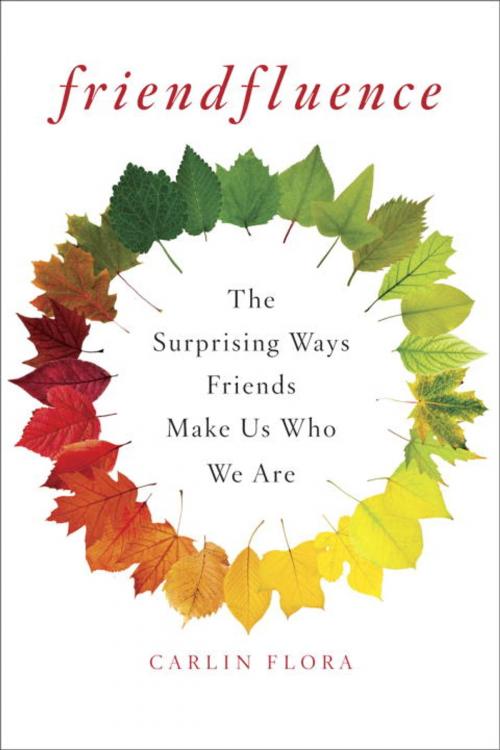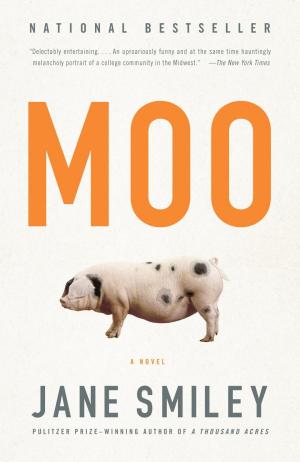Friendfluence
The Surprising Ways Friends Make Us Who We Are
Nonfiction, Family & Relationships, Relationships, Friendship, Health & Well Being, Psychology, Interpersonal Relations, Science & Nature, Science, Biological Sciences| Author: | Carlin Flora | ISBN: | 9780385535441 |
| Publisher: | Knopf Doubleday Publishing Group | Publication: | January 15, 2013 |
| Imprint: | Anchor | Language: | English |
| Author: | Carlin Flora |
| ISBN: | 9780385535441 |
| Publisher: | Knopf Doubleday Publishing Group |
| Publication: | January 15, 2013 |
| Imprint: | Anchor |
| Language: | English |
Discover the unexpected ways friends influence our personalities, choices, emotions, and even physical health in this fun and compelling examination of friendship, based on the latest scientific research and ever-relatable anecdotes.
Why is dinner with friends often more laughter filled and less fraught than a meal with family? Although some say it’s because we choose our friends, it’s also because we expect less of them than we do of relatives. While we’re busy scrutinizing our romantic relationships and family dramas, our friends are quietly but strongly influencing everything from the articles we read to our weight fluctuations, from our sex lives to our overall happiness levels.
Evolutionary psychologists have long theorized that friendship has roots in our early dependence on others for survival. These days, we still cherish friends but tend to undervalue their role in our lives. However, the skills one needs to make good friends are among the very skills that lead to success in life, and scientific research has recently exploded with insights about the meaningful and enduring ways friendships influence us. With people marrying later—and often not at all—and more families having just one child, these relationships may be gaining in importance. The evidence even suggests that at times friends have a greater hand in our development and well-being than do our romantic partners and relatives.
Friends see each other through the process of growing up, shape each other’s interests and outlooks, and, painful though it may be, expose each other’s rough edges. Childhood and adolescence, in particular, are marked by the need to create distance between oneself and one’s parents while forging a unique identity within a group of peers, but friends continue to influence us, in ways big and small, straight through old age.
Perpetually busy parents who turn to friends—for intellectual stimulation, emotional support, and a good dose of merriment—find a perfect outlet to relieve the pressures of raising children. In the office setting, talking to a friend for just a few minutes can temporarily boost one’s memory. While we romanticize the idea of the lone genius, friendship often spurs creativity in the arts and sciences. And in recent studies, having close friends was found to reduce a person’s risk of death from breast cancer and coronary disease, while having a spouse was not.
Friendfluence surveys online-only pals, friend breakups, the power of social networks, envy, peer pressure, the dark side of amicable ties, and many other varieties of friendship. Told with warmth, scientific rigor, and a dash of humor, Friendfluence not only illuminates and interprets the science but draws on clinical psychology and philosophy to help readers evaluate and navigate their own important friendships.
Discover the unexpected ways friends influence our personalities, choices, emotions, and even physical health in this fun and compelling examination of friendship, based on the latest scientific research and ever-relatable anecdotes.
Why is dinner with friends often more laughter filled and less fraught than a meal with family? Although some say it’s because we choose our friends, it’s also because we expect less of them than we do of relatives. While we’re busy scrutinizing our romantic relationships and family dramas, our friends are quietly but strongly influencing everything from the articles we read to our weight fluctuations, from our sex lives to our overall happiness levels.
Evolutionary psychologists have long theorized that friendship has roots in our early dependence on others for survival. These days, we still cherish friends but tend to undervalue their role in our lives. However, the skills one needs to make good friends are among the very skills that lead to success in life, and scientific research has recently exploded with insights about the meaningful and enduring ways friendships influence us. With people marrying later—and often not at all—and more families having just one child, these relationships may be gaining in importance. The evidence even suggests that at times friends have a greater hand in our development and well-being than do our romantic partners and relatives.
Friends see each other through the process of growing up, shape each other’s interests and outlooks, and, painful though it may be, expose each other’s rough edges. Childhood and adolescence, in particular, are marked by the need to create distance between oneself and one’s parents while forging a unique identity within a group of peers, but friends continue to influence us, in ways big and small, straight through old age.
Perpetually busy parents who turn to friends—for intellectual stimulation, emotional support, and a good dose of merriment—find a perfect outlet to relieve the pressures of raising children. In the office setting, talking to a friend for just a few minutes can temporarily boost one’s memory. While we romanticize the idea of the lone genius, friendship often spurs creativity in the arts and sciences. And in recent studies, having close friends was found to reduce a person’s risk of death from breast cancer and coronary disease, while having a spouse was not.
Friendfluence surveys online-only pals, friend breakups, the power of social networks, envy, peer pressure, the dark side of amicable ties, and many other varieties of friendship. Told with warmth, scientific rigor, and a dash of humor, Friendfluence not only illuminates and interprets the science but draws on clinical psychology and philosophy to help readers evaluate and navigate their own important friendships.















